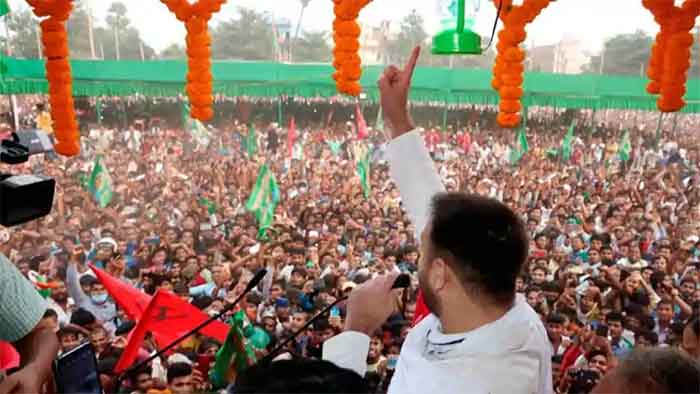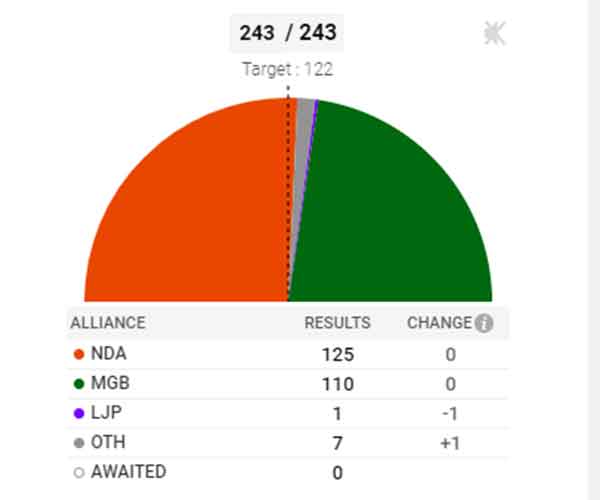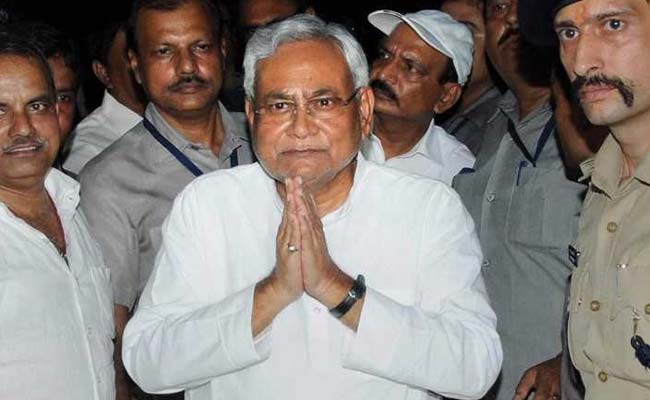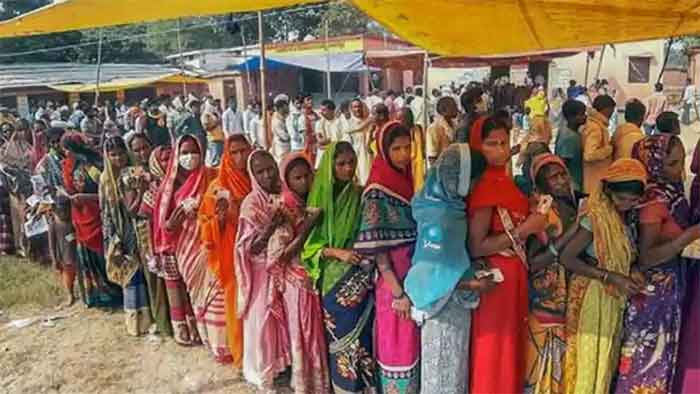Co-Written by Badre Alam Khan and Wasim Ahasan

Historically, Bihar has been the birth place of several social and political movements. For instance, the “Total Revolution” led by Jaiprakash Narayan had taken deeper roots in Bihar that posed a serious threat to the autocratic government of the then Indira Gandhi at the Centre. In response to that Ms. Gandhi had to impose the emergency (1975-1977) across the country. During the course of anti-emergency political derives, several social justice leaders such as Lalu Prasad Yadava, the late Ram Vilas Paswan, and Nitish Kumar, etc., had emerged under the JP movement. It has to be noted that Bihar has been known for the politics of social justice. And first, it was the government of Karpuri Thakur (1977) which had implemented the Mungerilal Commission and provided reservations to the backward castes in jobs and educational institutions. When the communal politics was at the height during 1990s especially around the controversy of Babri Masjid, the then Chief Minister Lalu Prasad had stopped the Rath Yatra in Bihar led by the BJP leader Lal Krishna Advani. In short, Bihar has been the same land where social justice leaders had tirelessly fought against the Kamandal politics that was championed by Hindutva forces, and they had launched a massive political campaign for the implementation of the Mandal Commission Report in the 1990s.
Just a few days back, Bihar Assembly poll was declared by the Election Commission of India. It will be conducted in three phases amid the Pandemic and scheduled to be held the first phase of election on 28th October, 2020. In this election, mainly two major alliances have been formed such as the NDA which includes BJP, JD (U), VIP and others on the one hand, and the grand alliance led by the RJD, Congress and Left parties on the other. Although, a third alliance is also formed by small parties like, AIMIM, RLSP and BSP that are in election fray. To note that this time, the LJP (currently part of the NDA alliance at the Center) has decided to put up candidates against the JDU led by Nitish Kumar. However, there is a tacit understanding between the LJP and the BJP in the context of Bihar election.
Having said that let us come to Muslim questions amidst Bihar Assembly elections. To be precise here, Muslims are an extremely under-represented and excluded community in all walks of life in India. These issues had been clearly revealed by the Sachar Committee report in 2006. Since the rise of the BJP-RSS combined in the Indian politics (especially 2014 onwards), questions of political representations of Muslims are worsening. In a recently published article titled, “Political Deprivation of Muslims in Bihar” (at the countrecurrent.Org on 29th September-2020, accessed on 14th October 2020), Abdur Rahman has vividly demonstrated this point in a systematic manner. The fact that developmental deficit, political deprivations, and socio-economic issues of Muslims have not been so far addressed by the consecutive governments including the Modi government.
In what follows, we are not going to discuss the developmental deficit and political deprivations of the Muslim community. We are also not willing to forecast which forces will be going to win or lose in the Bihar election. It would be too early to say anything on electoral outcomes especially in messy political situations. Rather our discussion will be limited to highlight in what ways secular, social justice and Left parties are going to address the genuine concerns of minority communities especially of Muslims concerning basic human rights and civil liberties issues like security, dignity, identity and freedom. In this respect, we would like to also highlight the harassments and arresting of anti-CAA protestors who have been falsely booked under the UAPA and other stringent laws.
The purpose of this article is to understand the strategic silence adopted by the Left, social justice and secular parties amidst Bihar election. In this regard, we will argue that these secular and progressive parties have succumbed to pressure of majoritarian norms established by the BJP-RSS combined in the political sphere. It is also being discussed that mere electoral alliances without having an alternative political vision, it would not be easy to counter the larger political agenda of the RSS-BJP. To counter the communal forces, social justice parties and Left and secular forces must not rely on merely electoral calculations and politics of making alliances amidst Bihar election. In this respect, it is vital to chalk out concrete alternative politics based on egalitarian norms which is enshrined in our democratic Constitution of India.
Let us forget the questions like socio-economic marginalization and political deprivations of Muslim community for a while. Although, these questions are extremely important and need to be taken seriously by opposition parties. However, it is crucial to raise here why the Left parties, Social justice forces and Secular dispensation like Congress are keeping silence around ‘Delhi Riots’ that followed by one sided arresting of anti-CAA protestors especially of Muslim youths who are still languishing in jails? Is it because opposition parties are succumbing before majoritarian narratives or directly or indirectly subscribing the same majoritarian tendency itself?
The silence and reluctance of the firebrand leader of CPI (Communist Party of India) like Kanhaiya Kumar and the so-called newly emerging leader of social justice (RJD) Tejashwi Yadav on the systematic harassments and arresting of anti-CAA protestors can be cited as a case in point here. It has to be remembered that both Kanhaiya and Umar Khalid were arrested by the Delhi Police after the incident of 9th February, 2016. After coming out of jail, both had launched a massive struggle against the majoritarian forces and have become a vocal critic of the Modi government since then. It has to be noted that Umar and other like-minded people had openly supported Kanhaiya during the 2019 Lok Sabha election campaign. Both have jointly addressed the anti-CAA protest gatherings and shared the stages on various occasions. Now, Umar is in the jail and facing the charges of the UAPA (Unlawful Activities and Prevention Act) for allegedly inciting violence in the northeast Delhi.
It is ironic that Kanhaiya is completely disassociating himself with Umar and maintaining a strategic silence amid the electoral campaign that is going on in Bihar. In this respect, the question arises why is Kumar not taking a firm political stand on the arresting of Umar and other anti-CAA protestors? What are the obvious factors and constraints before him? Whether he is in the trap of majoritarian narratives or driven by his own immediate electoral interest? It is clear that Kanhaiya is now bowing down before the majoritarian forces to get narrow electoral interest.
In a similar way, Tejashwi Yadav is too maintaining distance from Miran Haider, a Ph.D. student of Jamia, who was an active member of the RJD and currently languishing in the jail for allegedly inciting violence in northeast Delhi. Unlike erstwhile Left-progressive and secular minded leaders, both Yadav and Kanhaiya, appear to be compromising with principles like secularism, social justice, civil liberties of citizens and succumbing before the Hindutva forces for immediate political gain.
To conclude our discussions, it appears that forget for a while to address the socio-economic issues and political under-representation of Muslims, even the so-called Left and social justice parties and their emerging youth leaders seem to be ignoring the basic human rights and civil liberties issues such as related to security, identity and dignity of Muslim community amidst electoral campaign. This can be explicitly seen when the parties that claim to be secular and committed to progressive ideas are not bothering to take a firm political stand with respect to violation of civil liberties (often done by the state agencies and communal forces) amid Bihar election in the favor of even their own party members and comrades (Umar Khalid, Miran Haidar and others) who are languishing in jails.
Without having an alternative notion of politics, mere arithmetic of electoral politics and alliances are not adequate to address the concern of Muslims and other marginalized social groups. In fact, it would embolden the same majoritarian narrative in the public-politico domain. To counter the dominant narrative of Hindutva politics, and address genuine basic human rights and civil liberties of Muslims and subaltern masses as stated above, it is important for the Left, Social justice and secular parties to chalk out the robust alternative politics on the lines of ‘egalitarian principles’ as Babasaheb Ambedkar had visualized during the making of the Constitution of India.
Badre Alam Khan is a Research Scholar, University Of Delhi and Wasim Ahasan is a former student of Jamia Millia Islamia.
SIGN UP FOR COUNTERCURRENTS DAILY NEWSLETTER












































